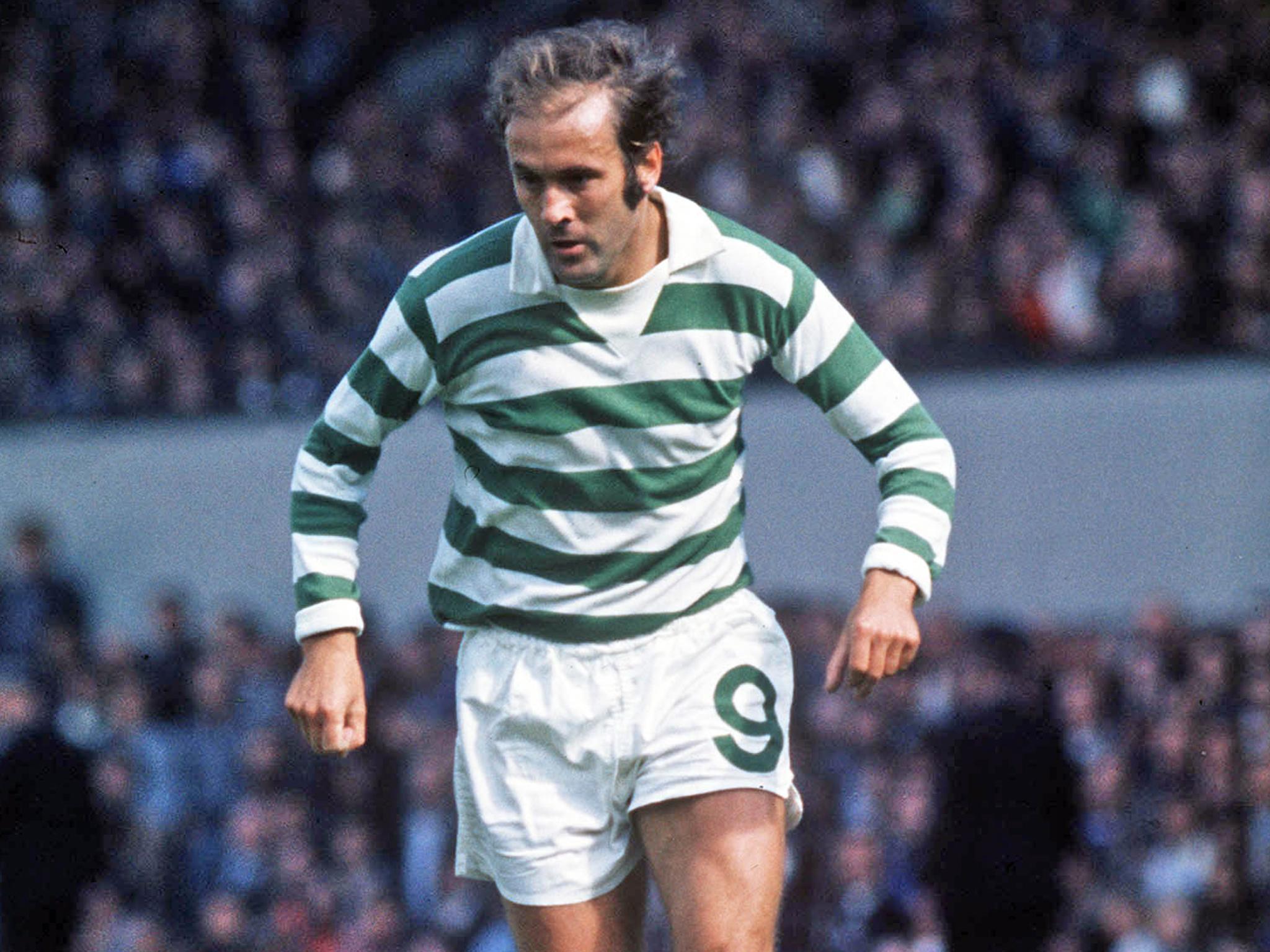Harry Hood: Celtic legend who won five championship medals and five cups
Born into a sporting Glasgow family, the silky striker joined his boyhood heroes in 1969, scored a memorable hat-trick in an Old Firm cup tie and went on to become one of the game’s most successful businessmen

Harry Hood’s footballing career saw him partner Alex Ferguson in an unofficial Scotland XI, play alongside Bobby Moore in Texas and appear in England’s top flight. Yet nowhere was the mobile, clinical, 5ft 9in centre-forward as successful as during his seven years with Celtic from 1969.
Hood, who has died at the age of 74 after suffering from cancer, signed for the 1967 European Cup winners from Clyde and scored on his debut against St Mirren, the first of the 123 goals he would amass in 310 games for Celtic.
His tally included a hat-trick in an Old Firm clash with Rangers in a Scottish League Cup semi-final in 1973 and goals in the Scottish Cup finals of 1971 and 1974, against Rangers and Dundee United respectively.
Born in Glasgow, Hood came from a sporting family. One brother, Jackie, had a spell with Everton and played in the Football League for Tranmere Rovers.
Another boxed for Scotland, while two sisters became professional ice skaters. He went to a rugby-playing school, where he played hooker, but his goalscoring prowess led to his being signed by Clyde in 1962.
Hood’s first season ended in relegation. In 1963-64, however, when the Glasgow minnows regained top-flight status, he scored 37 goals in 45 matches. In November 1964 he turned down Celtic – “because of a few snags” – and moved to Sunderland for £30,000.
After a bright start on Wearside, which included a goal in an FA Cup victory over Everton and the winner against Manchester United, his relationship with manager Ian McColl deteriorated. After a respectable nine goals in 31 appearances he returned to Clyde for only £11,000.
Promptly resuming his free-scoring ways he was selected in 1967 for a Scottish FA tour which played representative matches – though not full internationals – against Israel, Hong Kong, Australia, New Zealand and Canada. One fellow striker was a 25-year-old called Ferguson who was about to depart Dunfermline for Rangers.
In March 1969, in common with the future Manchester United manager, Hood also earned an opportunity to join his boyhood favourites. This time, in a £40,000 transfer, he seized it, leaving Clyde with 96 goals in 197 games over two spells.
Jock Stein’s team had begun the transition from the “Lisbon Lions” line-up which had conquered Europe to a new generation spearheaded by Kenny Dalglish, Lou Macari and Danny McGrain. Hood, with his silky touch and cool finishing, slotted in seamlessly. During his time at Parkhead Hood played his part in six successive league title triumphs – though he had joined too late in 1969 to play enough games to qualify for a championship medal that campaign.
In his second full season he was Celtic’s leading scorer with 33 goals. The 1973 treble against Rangers showcased his qualities; one shot with his left foot, another with the right, and a header.
Armed with five Scottish League winner’s medals, three from the Scottish Cup and two in the Scottish League Cup, Hood left Celtic in 1976. He then undertook one summer with San Antonio Thunder in the North American Soccer League, where Moore was captain. His playing days – which surprisingly delivered a solitary international cap, for Scotland Under-23s in 1968 – ended with Motherwell and Queen of the South.
Following brief stints as manager of his final club and Albion Rovers in 1981-82 Hood went into the licensed trade. He and his wife Kathleen, whom he met when he was 16, founded the Lisini Pub Company and built it into a multimillion-pound business. The company name came from their daughters Lisa and Siobhan and son Nicholas, all of whom entered the family business. Indeed, Lisa (Wishart) went on to become managing director.
Hood was diagnosed with bowel cancer in 2015. He appeared to have recovered and last year helped his company raise £50,000 for the Beatson Cancer Charity, but the disease returned and he died surrounded by his family at home in Bothwell, Lanarkshire.
Henry Anthony Hood, footballer and businessman, born 3 October 1944, died 26 May 2019
Join our commenting forum
Join thought-provoking conversations, follow other Independent readers and see their replies
Comments
Bookmark popover
Removed from bookmarks